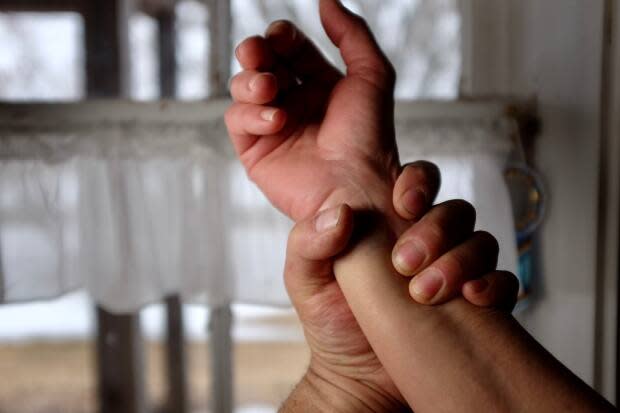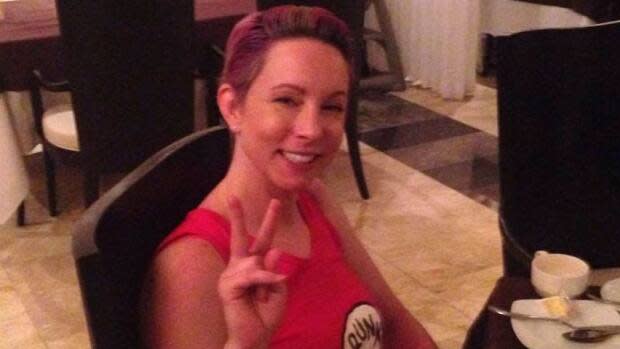Domestic violence on the rise during COVID-19 — here's what you can do about it

COVID-19 has made it more difficult for women living in a violent relationship to get help.
"The pandemic hasn't done any favours to our victims of domestic violence," said Kristal LeBlanc, CEO of the Beausejour Family Crisis Resource Centre in Shediac.
That's because perpetrators are around their victims more often, because they're either working from home, or unable to work and relying on CERB instead.
"They can make it exceptionally challenging for [their victims] to look up what services exist, to be able to do their appointments."
She said some clients who came into the shelter had to lie to their abusers about where they were going to get out of the house, like saying they're going to pick up milk.
"We'll have to get one of our students to actually go and secure some of those items, so it kind of matches up with their story," she said.
According to management reviews done by the RCMP, New Brunswick has one of the country's highest rates of murder-suicides linked to intimate partner violence. Most of them have occurred in small towns or rural areas.
Numbers increase after Christmas
The 14 shelters across the province are at one of their busiest times between Christmas and New Year's.
It's often because people stretch themselves too thin financially and realize they have to pay back bills once Christmas is over.
This increases tension in the household, which already existed before Christmas.
"They're walking on eggshells," she said.

In 2019, the Beausejour Family Crisis Resource Centre saw 700 violence interventions and more than 400 interventions with perpetrators.
"Those are the women that came to see us," she said. "I don't want anybody to be fooled that that's a realistic number."
At the same time, only 20 per cent of victims will seek help of any kind.
In rural New Brunswick, neighbours aren't always close by, so it can be hard to get help when it's needed. Also, firearm possession is more common.
Also, with COVID-19 restrictions, shelters have limited space available.
Signs of an abusive relationship
LeBlanc made it clear, domestic abuse isn't just physical.
Victims can face emotional, financial and verbal abuse as well. In fact, most clients aren't victims to physical violence.
"A bruise heals," she said. "Power and control is what we're worried about most."
Some red flags include an effort made by the perpetrator to isolate the victim from family and friends. They're also easily jealous and like to be in control.
How to help
On Monday, Mindy Godin was stabbed to death at home. She ran to the convenience store next door to get help, but she died on the way.
The attack happened in front of her two small children.
Since her death, people all over Facebook have been making posts to "put and end to domestic violence."
The Grand Falls Police Force has not yet confirmed that Godin died from domestic violence and said they are still investigating.

LeBlanc made it clear everyone has a role to play when someone is at risk of domestic violence.
"People look at domestic violence as a private matter and only happens in certain social economic families."
But she said it can happen to anyone.
Cindy McCormick, a 46-year-old mother of two, was killed by her partner Bobby Kaine, a 52-year-old Saint John firefighter, while the couple was in Alberta in 2017.

"We do have a role to safely try and connect with people."
It can often take six or seven tries to leave an abusive relationship.
Sometimes victims are financially dependant. They're told they're not good enough and won't be able to find anyone else. And sometimes they stay for the kids because victims don't want to fight for custody.
And most times, victims tolerate this behaviour and act as though everything is fine.
"They've adapted to survive."
LeBlanc said it's important to let a victim know you're there for them, that you believe them and there are services available.
LeBlanc said while victim programming is important, so is programming for perpetrators.
"If they don't receive that service, there will be future incidences."


